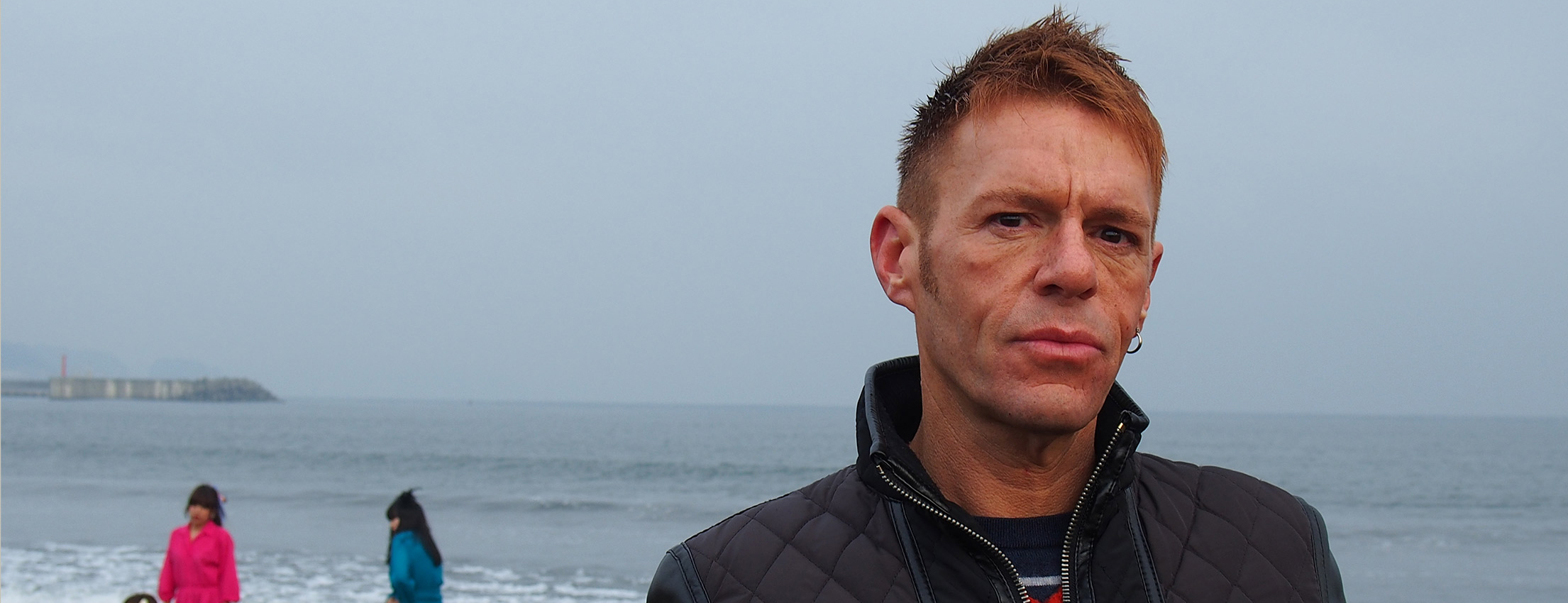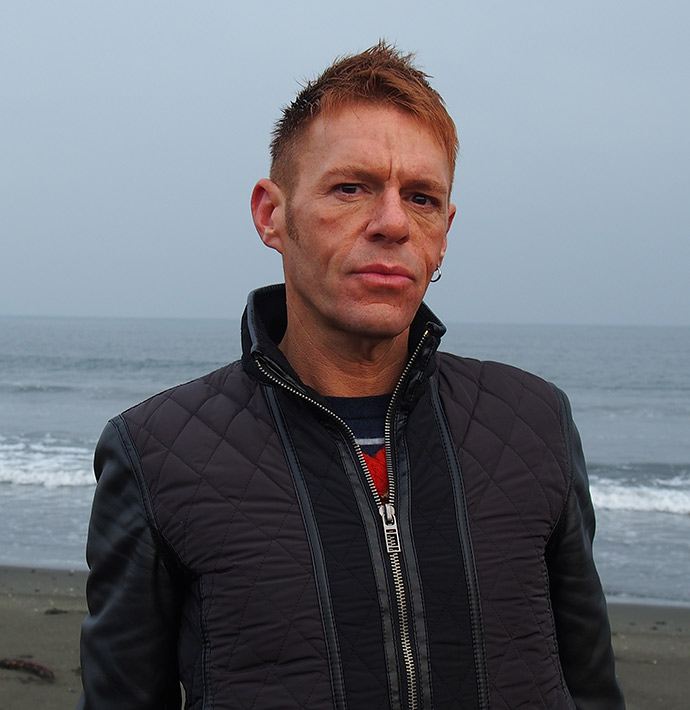Paul Hullah


What Remains Where: Literature and I
“Tell me where a man is from, and I will tell you who he is.”
(13th Century Italian Proverb)
A British poet called John Lennon sung, in a song entitled ‘In My Life’, of ‘places I remember … some have gone, and some remain.’ He didn’t mean remain geographically, physically, I imagine, but internally, in the mind. For places remain in us even when we move away from them. I left Britain for Japan in 1992; I have lived here since. But Britain stays in me. Moreover, the things I love most about Britain (literature, culture, humour, music) are intangibles, accessible wherever I am. Being away from their provenance only makes me value and appreciate them more. The fresh ‘objectivity’ that considering ‘mother’ culture from outside necessitates works, ironically, to make one more fiercely subjective about that from which one is exiled by choice. Residing in Japan has lent me an invaluable comparative perspective on British literature and culture, and I hope I appreciate them more thoughtfully, and shrewdly from where I look now. I trust this acquired relativism will serve me well as I bring what modest experience and knowledge I have to Meiji Gakuin University.
I am out of Britain, but Britain’s never out of me, and where (and how) I’ve been formed has mattered as well as where I’m from. Absence has indeed made my heart grow fonder. Therefore, to steal from Wordsworth, am I still a lover of the meadows and woods that were my childhood haunts in Yorkshire, and more a lover now of the culture and language and, in particular, the literature I found there, from the first abridged ‘classic tales’ my mother borrowed for me from our village library, to the true classics my great teachers steered me into at school. Above all else, wherever I go, those books remain.
Literature: where language becomes beautiful and knowingly untransparent, to make us most aware of what it can do beyond simply ordering (instructing, and arranging) our days in pragmatic ways. Car manuals teach me exactly how to fix my broken engine; but a poem might let me figure more freely how I feel about my engine breaking, or about my heart breaking (no manual can fix a broken heart, but words will soothe it). Literature is language that plays, admits uncertainties, provokes but seldom hectors, offers possible truths but lets us choose the ones we want to keep, and is never churlish when we turn the other options down; it gives us space when we need it, but is there for us whenever we want it. Because of this, literature has remained my best, most patient friend since childhood. It has intensified happy times by giving them names and a memorable context, and has helped me cope with sadness and troubles by framing consolation, dismissing finalities, showing me I’m not alone. As Sigmund Freud said, ‘Everywhere I go, I find that a poet has been there before me.’
There are so many writers and writings that remain with me, and new ones every day to add to my list. How to select a prominent few? Was Chaucer’s rude musical wit a starting point? Or Shakespeare, who, on every page, leaves me stunned in awe. The English Romantics: philosophical juggling they did inside and outside at once, thence adopted but adapted by certain Victorians to give doubt (and faith: Hopkins) and woman (Christina Rossetti, a love of my life, subject of my Edinburgh University PhD thesis and critical monograph on which I’m working now) louder voices. Dickens, who took the world outside the window and made it more vivid, funnier, even more poignant than it already is. Iris Murdoch, whose incisive, poetic-philosophical intellect I was fortunate enough to experience at first hand, becoming acquainted with her and her husband, the critic and novelist John Bayley (it was their encouragement and positive intervention that led to my own first volume of poetry being published in the UK), whilst co-editing an authorized edition of her poetry with my then Okayama University colleague Professor Yozo Muroya.
My own meagre published writings, some poetry and critical essays, are not bestsellers, nor were they meant to be, but, as my inadequate way of repaying the world of letters that has sustained my soul for so many seasons, I am glad that, when I am gone, some words of mine will remain of me after.
Besides Christina Rossetti, most deeply influential on me: T. S. Eliot. When I was a troubled teenager (as opposed to the troubled 44-year-old I am now) at Ripon Grammar School, my indefatigable English teachers — Miss Carrick, Mr. Finch, Mr. Horton: names that always remain — introduced me scores of authors in the space of seven years. I was hopeless with numbers or science at school, largely unstimulated by them, and a mess on the sports field mostly. Only when literature and freedom to be creative in language were involved did I truly feel alive and somehow in control, feel that my life made some kind of sense (or, if it didn’t, it didn’t matter). In my final year, scrambling for inspiration for an essay I was writing trying to explain what I thought Rossetti’s quiet subversive deconstructions might be prefiguring, I read T. S. Eliot’s Waste Land and Four Quartets one afternoon in the school library, and everything changed; my world became a different place, more exciting, with a wider range of possibilities if not, necessarily, answers. It remains that changed world even now, and it remains exciting.
But why poetry? Why would anyone wish to study and talk and write about poetry or (even more unthinkable) to write poetry? At my previous workplace, Miyazaki University, a student asked me, ‘Why do you write poetry?’ I replied, truthfully, ‘Because I can’t not write it. It won’t stop. It’s as natural as breathing to me. I want to ask people who don’t write poetry why they do not.’ Others ask, ‘But what does poetry, or literature, mean?’ Well, it means I’m less lost than I otherwise would be. It’s a map I can use to work out where I might be going, routes and patterns put on the natural exteriors. That’s what literature is, surely: imposing ceremony, rituals, shapes, patterns upon the chaotic world in an attempt to make life (and love, and death) more meaningful, less frightening, mapped patterns that we can pass on to our children, that they can learn from our versions of the world and begin to form their own.
Making or locating significant patterns: that’s what everyone does. Whether it was my father designing and landscaping gardens, my amateur-genealogist cousin who has made it his life’s quest to trace our family tree back to mediaeval times, or me writing and studying poetry: we’re all trying for some sort of order, striving for structure and reassurance. That’s why there’s music, set dinner menus, football leagues and teams who play in them. That’s why we need faith, why we really ought to, as that great work of literature, the Bible, tells us, do for others as we would have them do for us. We’re trying for harmony, meaning and order. Without this endeavour, the alternatives are unthinkable. Without it, we go back to chaos. And, as the poet Seamus Heaney has noted, literature’s one of the most enigmatic and enduring, magical and mighty of the patterns we can weave on the world to contain it, because literature’s patently ‘made up’, and yet the words can affect us more than storms or heat, and, in them, we can find more truths about ourselves than in any verifiable science. As such, invented freely, unlegislated, literature is undeniable. I simply cannot imagine not studying literature.
So this is what I humbly and gratefully bring of myself to Meiji Gakuin University. I am delighted to be here and hope to remain among you for a long time. I hope you’ll come and study with me, let me help you make or find some maps, some meaningful patterns, some words that fit. Tell me where you want to go; I’ll try to tell you good ways to get there, and recommend some reading for the journey.
